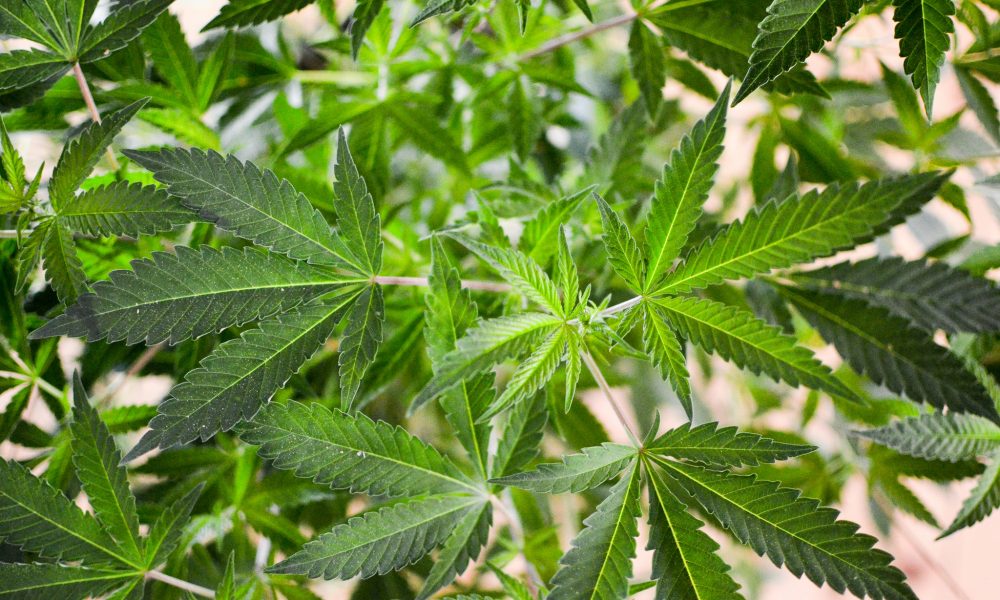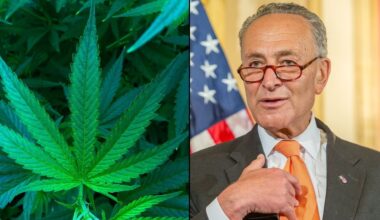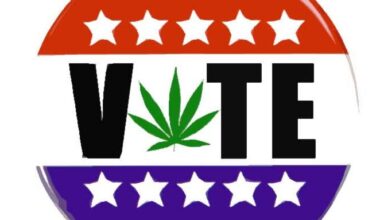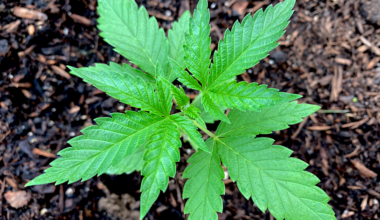Congressional lawmakers are urging House leaders to include broad protections for states, territories and tribes that choose to legalize marijuana as part of a key spending bill that’s expected to be introduced next week.
Reps. Earl Blumenauer (D-OR), Tom McClintock (R-CA), Eleanor Holmes Norton (D-DC) and Barbara Lee (D-CA), along with 44 of their colleagues, recently sent a letter calling on the chairman and ranking member of an appropriations subcommittee to address the issue through the must-pass legislation.
The letter, which was shared with Marijuana Moment, includes three sections of language that the lawmakers hope to see in the base spending bill for the Commerce, Justice, Science, and Related Agencies (CJS).
In general, the proposals would block “the Department of Justice from prosecuting those who comply with their state or tribal marijuana laws,” the lawmakers wrote.
A rider preventing DOJ from using its federal funds to interfere in the implementation of medical cannabis legalization has been annually renewed since 2014, but they’re pushing for broader protections in the CJS appropriations measure.
Here’s the main section that the lawmakers have requested:
“None of the funds made available by this Act to the Department of Justice may be used, with respect to any of the States, the District of Columbia, or U.S. territories to prevent any of them from implementing their own laws that authorize the use, distribution, possession, or cultivation of marijuana.”
Most legalization laws at the state level “were decided by ballot initiatives,” the four dozen lawmakers said. “The federal government should not interfere with these programs and the will of the citizens of these states.”
For the past two fiscal years, the House has attached the sweeping protections to its version of the appropriations legislation as an amendment adopted on the floor, but it’s yet to be incorporated into the final package. Now, the lawmakers are saying it should be included in the original bill as introduced by leaders, circumventing the need for a floor vote later.
Blumenauer testified before the subcommittee during a members day in April, describing his request for the inclusion of the cannabis language as his “top priority” in the bill this year.
“States from coast to coast—across the political spectrum, red and blue have—have taken meaningful action to end prohibitory policies and allow the development of both adult use and medical marijuana programs,” the congressman said. “The federal government should not interfere with these programs and the will of the voters.”
He also cited remarks from Attorney General Merrick Garland, who has said on multiple occasions that he believes prosecuting people over cannabis is a waste of Justice Department resources. The top prosecutor also recently disclosed to Sen. Brian Schatz (D-HI) that DOJ would be addressing cannabis issues “in the days ahead.”
The recent letter to appropriators also asks that the tribe-specific language be included in the base bill for Fiscal Year 2023.
Here’s the proposed language for that section:
“None of the funds made available by this Act to the Department of Justice may be used to prevent any Indian tribe (as such term is defined in section 4 of the Indian Self Determination and Education Assistance Act (25 U.S.C. 5304)) from enacting or implementing tribal laws that authorize the use, distribution, possession, or cultivation of marijuana.”
“We believe that the federal government should provide clarity and respect the sovereignty and will of Indian tribes should they choose to enact marijuana laws in the same way that most of states have now done,” the legislators wrote. (In the new letter, the descriptions of the requested sections appear to be accidentally swapped as a result of a drafting error.)
In past years, the House has approved language on protections for tribal marijuana programs as floor amendments.
Relatedly, a Senate committee is scheduled to hold a listening session on “Cannabis in Indian Country” on Friday.
Finally, the lawmakers urged that the appropriations subcommittee also continue to include the medical marijuana rider that’s been annually renewed for nearly a decade now.
Here’s that language:
“None of the funds made available in this Act to the Department of Justice may be used to enforce federal prohibitions involving the use, distribution, possession, or cultivation of marijuana for medical purposes that are permitted by the laws of the state, the District of Columbia, or U.S. territory where the act was committed, or to prevent states, the District of Columbia, or U.S. territories from implementing their own laws that permit the use, distribution, possession, or cultivation of marijuana for medical purposes.”
Outside of CJS, congressional leaders have additionally proposed a number of marijuana policy changes in newly released spending legislation, including protections for immigrants who use cannabis, freeing up marijuana-related advertising and providing the industry with access to the banking system. There are also provisions concerning hemp.
The Fiscal Year 2023 spending bills for the Department of Homeland Security (DHS), Financial Services and General Government (FSGG) and U.S. Agriculture Department (USDA) each contain cannabis provisions, some of which have been included in prior appropriations measures but others that are new.
The draft bills are being marked up at the subcommittee level this week, with the full House Appropriations Committee set to vote on them next week. Spending bills for other departments and divisions that have yet to be released are also expected to touch on cannabis and other drug policy reform issues.
The CJS bill that lawmakers want state and tribal protections attached to is set to come up in subcommittee next Wednesday and in full committee on June 28.
Read the letter to appropriators on marijuana language for the CJS spending bill below:
Attorney General Says Justice Department Will Address Marijuana Issues ‘In The Days Ahead’
Photo courtesy of Philip Steffan.
Medical Disclaimer:
The information provided in these blog posts is intended for general informational and educational purposes only. It is not a substitute for professional medical advice, diagnosis, or treatment. Always seek the advice of your physician or other qualified healthcare provider with any questions you may have regarding a medical condition. The use of any information provided in these blog posts is solely at your own risk. The authors and the website do not recommend or endorse any specific products, treatments, or procedures mentioned. Reliance on any information in these blog posts is solely at your own discretion.







